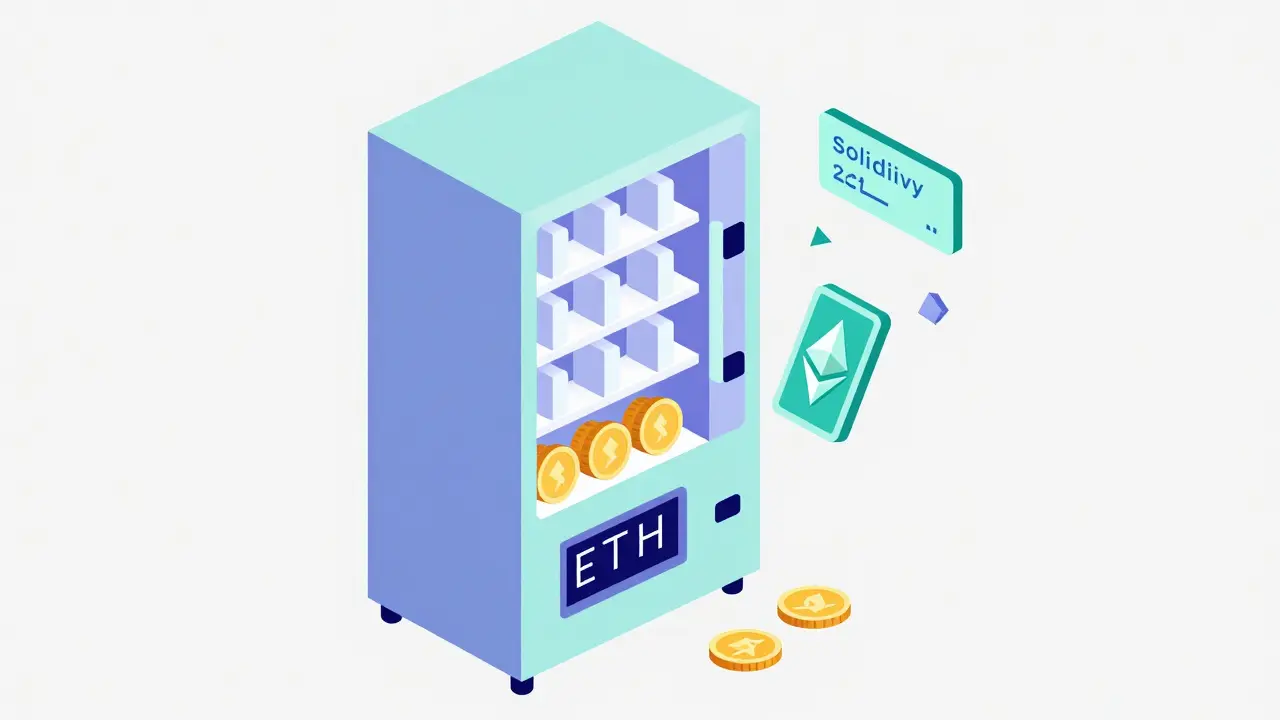Solidity: The Language Behind Smart Contracts and Ethereum Apps
When you interact with a DeFi protocol, buy an NFT, or stake tokens on a blockchain, you’re often using code written in Solidity, a programming language designed specifically for writing self-executing contracts on the Ethereum blockchain. Also known as Ethereum smart contract language, it’s what turns simple ideas into automated financial systems that run without middlemen. If you’ve ever wondered how platforms like Uniswap or OpenSea actually work under the hood, the answer usually starts with Solidity.
Solidity isn’t just another coding language—it’s the foundation for decentralized apps, or dApps. It lets developers create rules that automatically trigger when certain conditions are met: send tokens when payment arrives, lock funds until a date passes, or distribute rewards based on staking activity. This is why nearly every major DeFi project, from Dopex to Uniswap v3, relies on Solidity. It’s also the reason why smart contract bugs can cost millions—because once deployed, that code can’t be changed. That’s why understanding Solidity isn’t just for developers; it’s essential for anyone who wants to know what they’re really trusting when they connect their wallet.
Related tools like Remix IDE and Hardhat are used to write and test Solidity code, but the real value comes from seeing how it’s applied. In our collection, you’ll find posts that break down real-world examples: how liquidity pools use Solidity to manage funds, why scams like CDONK and EVA airdrops exploit poor contract audits, and how platforms like Hydra or Superp rely on custom Solidity logic to enable high-leverage trading. You’ll also see how security flaws in these contracts lead to hacks, like the one that wiped out XeggeX users. Whether you’re learning to code or just trying to avoid scams, knowing how Solidity works gives you the edge.
What you’ll find here isn’t theory—it’s practical insight from the trenches. We don’t just explain what Solidity is. We show you how it’s used, misused, and abused across the crypto world. From tiny memecoins to major DeFi protocols, the code behind it all often starts with Solidity. And if you understand that, you’re already ahead of most traders.
How Smart Contracts Work on Ethereum: A Clear Breakdown
Smart contracts on Ethereum are self-executing programs that run automatically when conditions are met. Built on the EVM and written in Solidity, they power DeFi, NFTs, and DAOs-eliminating intermediaries with code that’s transparent, immutable, and trustless.
learn moreEthereum: The Leading Smart Contract Platform
Ethereum is the leading smart contract platform, powering millions of decentralized apps, DeFi protocols, and NFTs. With Ethereum 2.0 and Layer 2 scaling, it's faster, cheaper, and more sustainable than ever.
learn more
